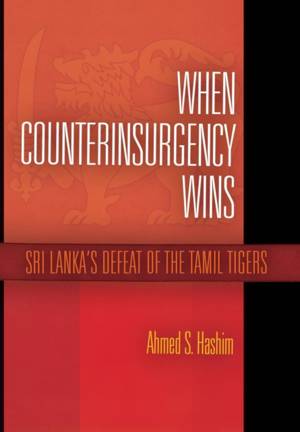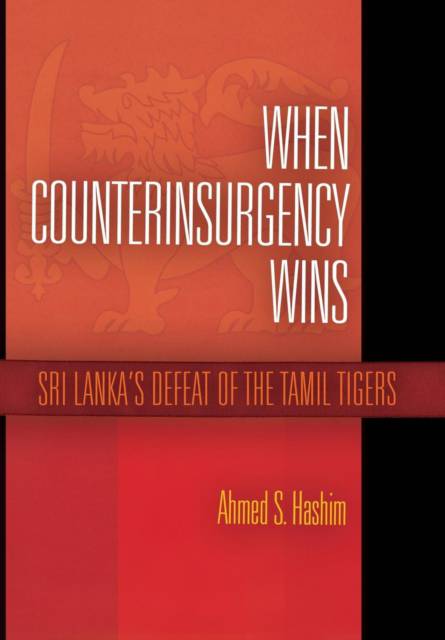
- Afhalen na 1 uur in een winkel met voorraad
- Gratis thuislevering in België vanaf € 30
- Ruim aanbod met 7 miljoen producten
- Afhalen na 1 uur in een winkel met voorraad
- Gratis thuislevering in België vanaf € 30
- Ruim aanbod met 7 miljoen producten
When Counterinsurgency Wins
Sri Lanka's Defeat of the Tamil Tigers
Ahmed S HashimOmschrijving
For twenty-six years, civil war tore Sri Lanka apart. Despite numerous peace talks, cease-fires, and external military and diplomatic pressure, war raged on between the separatist Liberation Tigers of Tamil Eelam and the Sinhala-dominated Sri Lankan government. Then, in 2009, the Sri Lankan military defeated the insurgents. The win was unequivocal, but the terms of victory were not. The first successful counterinsurgency campaign of the twenty-first century left the world with many questions. How did Sri Lanka ultimately win this seemingly intractable war? Will other nations facing insurgencies be able to adopt Sri Lanka's methods without encountering accusations of human rights violations?
Ahmed S. Hashim--who teaches national security strategy and helped craft the U.S. counterinsurgency campaign in Iraq--investigates those questions in the first book to analyze the final stage of the Sri Lankan civil war. When Counterinsurgency Wins traces the development of the counterinsurgency campaign in Sri Lanka from the early stages of the war to the later adaptations of the Sri Lankan government, leading up to the final campaign. The campaign itself is analyzed in terms of military strategy but is also given political and historical context--critical to comprehending the conditions that give rise to insurgent violence. The tactics of the Tamil Tigers have been emulated by militant groups in Palestine, Iraq, Afghanistan, and Somalia. Whether or not the Sri Lankan counterinsurgency campaign can or should be emulated in kind, the comprehensive, insightful coverage of When Counterinsurgency Wins holds vital lessons for strategists and students of security and defense.Specificaties
Betrokkenen
- Auteur(s):
- Uitgeverij:
Inhoud
- Aantal bladzijden:
- 280
- Taal:
- Engels
Eigenschappen
- Productcode (EAN):
- 9780812244526
- Verschijningsdatum:
- 3/06/2013
- Uitvoering:
- Hardcover
- Formaat:
- Genaaid
- Afmetingen:
- 160 mm x 231 mm
- Gewicht:
- 566 g

Alleen bij Standaard Boekhandel
Beoordelingen
We publiceren alleen reviews die voldoen aan de voorwaarden voor reviews. Bekijk onze voorwaarden voor reviews.











